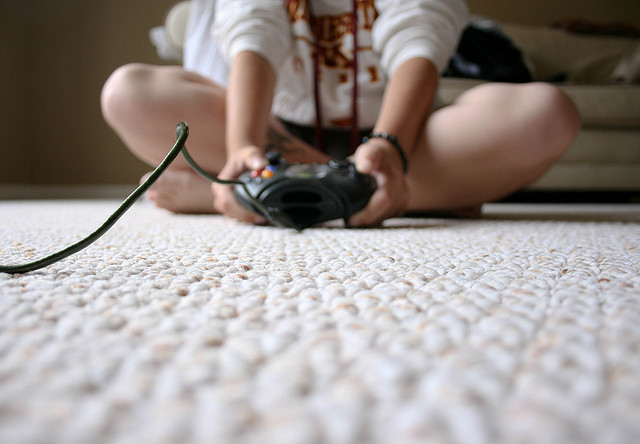Psychologists, social workers, and other clinicians are beginning to recognize the value of video games and other technologies in therapeutic interventions. For some clinicians who work with kids, it may simply be the value of playing a video game to foster a therapeutic relationship. Games are also used by therapists to practice social/emotional or problem-solving skills.
Video games or virtual environments can be used to expose clients to a stimulus that cause them severe anxiety. Video games have also been designed to assist clients dealing with aggression issues, ADHD, autism, and personality disorders. According to Wilkinson et al. (2008), while some video games have already shown efficacy in treatment, others have not proven to be very useful.
Most clinicians know “virtually” nothing about using technology in their work with patients. In part, this is due to a lack of comfort with games and technology, but it is also related to the paucity of well-controlled studies that demonstrate which technologies work best and how to apply them in psychotherapy. Additional research needs to be conducted to determine which video games would be helpful for specific clients and scenarios.
To learn more about this important topic, check out these straightforward and scholarly articles that reflect the current state of the science. You can also link to our complete bibliography on the science of games and learning or go to the Center for Media and Child Health Research base for more extensive information.
“[The] present paper provides background information on the use of commercial video games for the prevention, treatment, and rehabilitation of mental and other health conditions, and discusses ongoing grassroot efforts by online communities to use video games for healing and recovery” (Carras et al., 2018).
The authors discuss how computer games can be used effectively in treatment with mental health conditions when designed and used appropriately. It also suggests that games should be used as an adjunctive form of treatment rather than a primary form of treatment.
“This paper briefly and selectively examines a number of areas including: video games as physiotherapy and occupational therapy, video games as distractors in the role of pain management, video games and cognitive rehabilitation, video games and the development of social and communication skills among the learning disabled, and [much more] (Griffiths et al., 2017).”
This article examines video games that are specifically created for therapeutic use, and electronic games used in psychotherapy and group therapy. It was found that electronic video games can help engage children and teens more.
This article touches on the beginning of video games being used therapeutically. It talks about online and offline video game therapies based on internet use, and based on various special needs groups and conditions such as: ADHD, Anxiety Disorders, Aggression, Autism Spectrum Disorder, and Personality Disorders.
This article discusses how certain games are being used as an alternative for therapy and remedies for individuals who have brain damage related to learning disabilities and attention deficit disorders. The research found showed that therapist’s are using video games in order to improve memory, attention and/or processing skills, and task direction.




